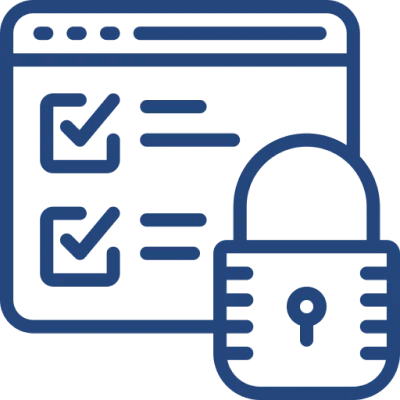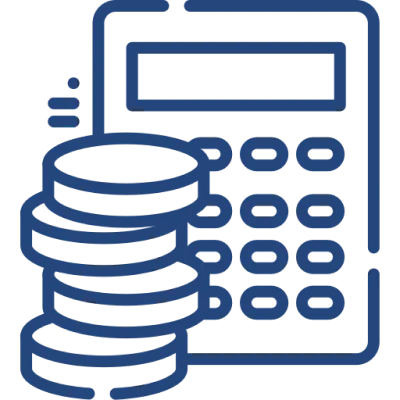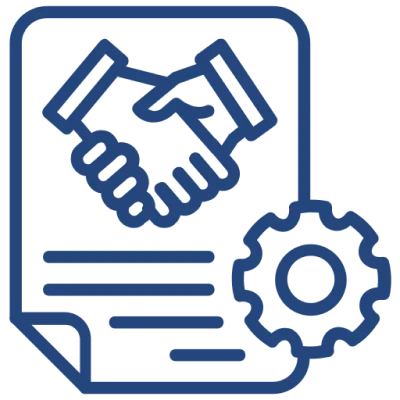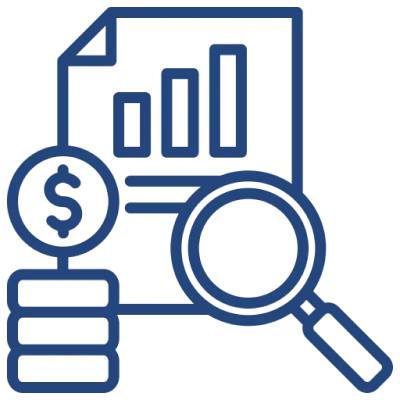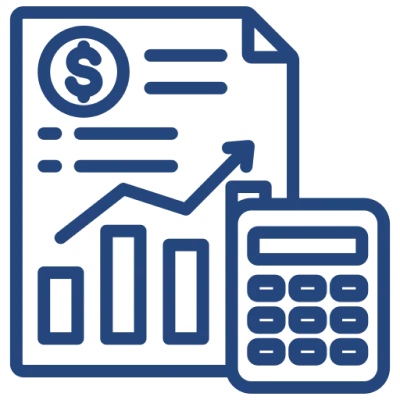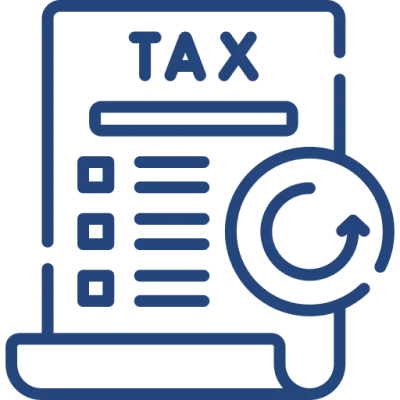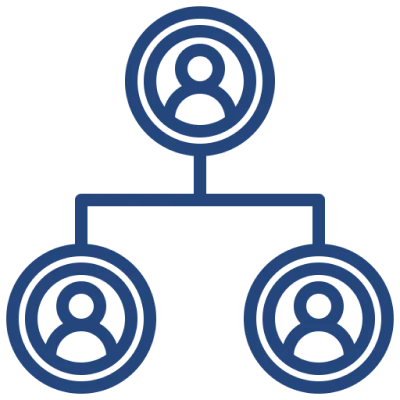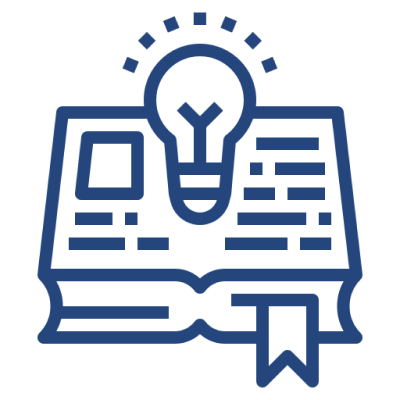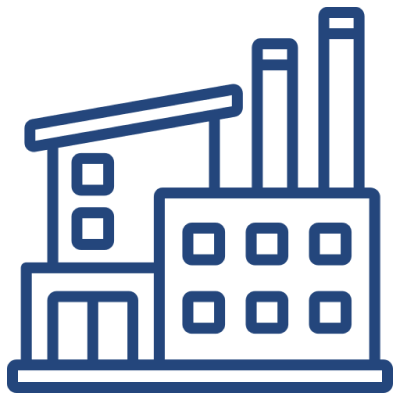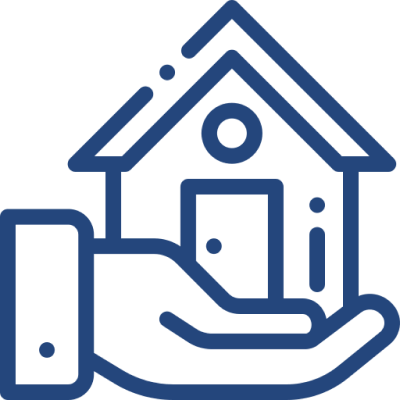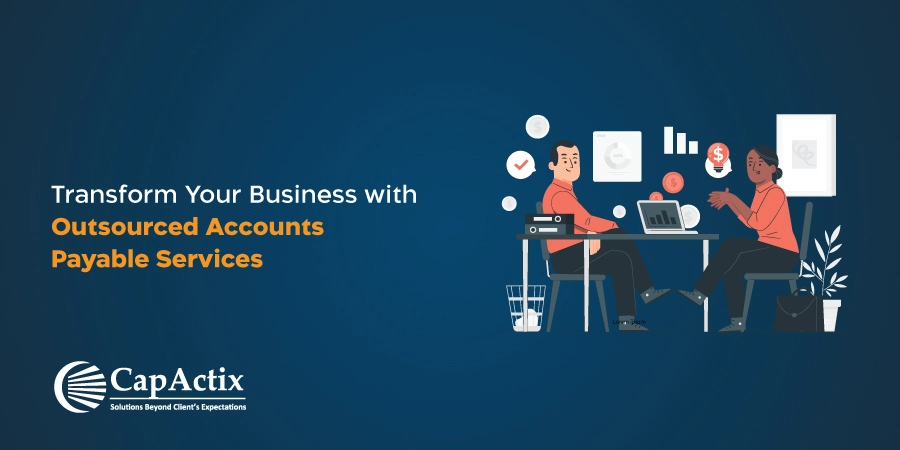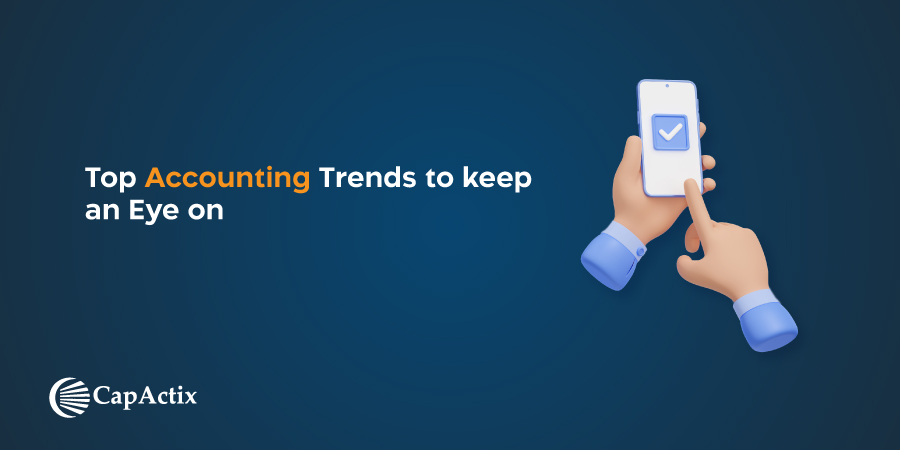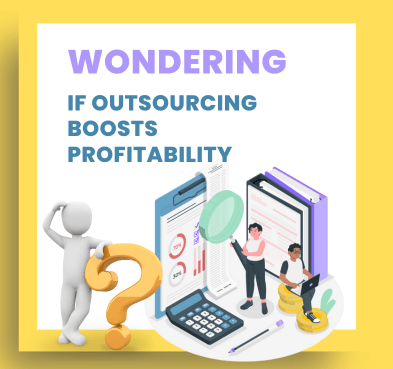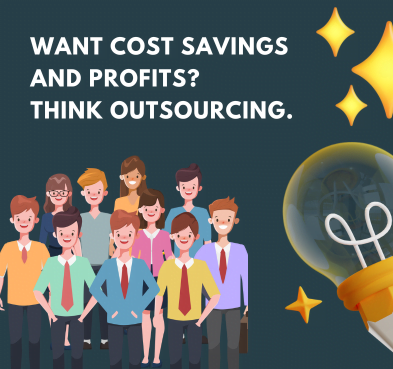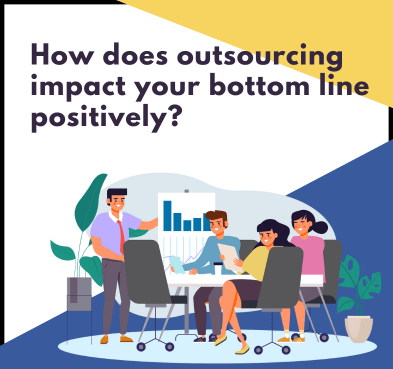Introduction
Accounting practices have changed over time with new technologies, evolving customer demands, and business needs. It is now much more than just bookkeeping and ledgers. Accounting firms are embracing these new trends to be in league with the new changes and better serve client demands.
The Pandemic effects are still relevant, and adapting to the latest accounting trends is the one way to stay sustainable for more extended periods in the market. Adopting new technologies and accounting trends in the business helps them embrace the new remote work culture, which is one way to stay sustainable for extended periods.
As the year 2023 starts, CapActix, the top accounting outsourcing agency, lists a few accounting trends to help businesses grow faster and improve profitability.
What is Accounting Trends?
The innovations and developments in the accounting landscape as per the changing business and customer needs are called accounting trends.
According to Sage accounting stats, 82% of accountants call companies to be more demanding than ever. While 87% of say clients demand better and more flexible services from accountants.
The accounting industry is witnessing rapid changes with technological advancements. Adopting cloud and AI technology in accounting practices brings much flexibility and automation, making accounting tasks easier and quicker for accountants.
Must read How much Do Accounting Outsourcing Services To India Cost You?
Why is it essential to Adopt The Latest Accounting Trends?
Accounting businesses leverage new-age software and the latest accounting technologies to become relevant to the current market demands and ready for the future. But why is there a need to embrace these new trends? Let us look at some benefits and the importance of being updated with the new accounting trends.
1. Excellent Customer Service
The new technologies help companies automate repetitive tasks that bring efficiency to routine work. Moreover, automation saves the staff more time to focus on essential and relevant accounting tasks. Thus, it is an excellent opportunity for business owners to improve work productivity. When they have more time and greater work efficiency, businesses can provide excellent services to their customers.
2. Financial Performance Improvement
The use of data analytics and forecasting tools helps businesses in forecasting, planning, and budgeting. The data visualization tools provide necessary insights into the business and financial data and thus help firms become proactive in making decisions. With proactive financial decisions, businesses can boost their profitability.
3. Strong security
Accounting and finance firms are always at a greater risk of data breaches and cybersecurity. The stealing of personal or business data, spoofing, or identity theft is common threat to accounting firms. Advanced accounting trends like secured software help protects the data. With cloud and remote desktop access, there is no need for data transfer from one desktop to another. Thus, there is no chance of data breach or loss.
4. Efficiency of Operations
Advanced accounting software makes managing cash flow statements, ledgers, and other finance operations easy and efficient. Further, it eliminates manual errors, speeds up operations, and helps keep data well organized. Further, a record of accounting is easy to maintain.
Must read Ultimate Guide to Outsourced Tax Preparation Services to India
Top 13 Accounting Trends To Follow in 2023
Let’s see what are the accounting trends for 2023.
- Cloud-based accounting
- Data analytics and forecasting tools
- Automated accounting process
- Outsourcing of accounting functions
- Blockchain
- Continuously enhancing Accountants
- Cryptocurrency
- Remote workforce
- Agile accounting
- Workplace wellness
- Data security
- Advisory accounting services
- Proactive accounting
1. Cloud-Based Accounting
Accounting & CPA firms earn higher year-after-year revenue and acquire 5X more customers with cloud-based accounting.
- 61% of users are planning to transform their accounting software to Cloud.
- 77% of users say they experienced positive results after purchasing Cloud accounting trends.
Cloud is one of the most adopted trends in accounting practices currently. It brings more flexibility to accounting practices allowing remote and shared access to resources and data. Businesses can maintain their business data online. The data is secure and end-to-end encrypted, and it is possible to access data from any remote device. Further, collaboration and data exchange are also easy and quick with secured authorization and access to data. Further, with cloud-based accounting solutions, business owners can cut up to 50% of labor costs.
Let us look at some of the benefits of adopting Cloud technology in accounting practices:
- Business owners can view and keep track of their current financial status anywhere, anytime.
- Cloud allows multi-user access that helps remote teams collaborate online.
- Limited authorization to data to each user ensures the security and confidentiality of data.
2. Data Analytics and Forecasting Tools
The use of data analytics in accounting is not new. CPA firms and businesses have been using it for years, but now it is more prevalent than ever.
Organizations collect data from various sources to store and gather insights about the market, customers, and competitors. The data about business, finances, or the market is crucial for businesses to operate efficiently. The data is complex, and CPA firms or organizations look for accountants who can manage, mine, and analyze the data for them.
Thus, the demand for hiring accountants with solid data analytical skills is on the rise. Big data analytics allow firms to gain valuable insights and identify upcoming trends. Further, they can analyze and forecast potential risks and make investment plans accordingly.
Accountants use data analytics tools for risk management, budgeting, tax consulting, forecasting, and auditing. Visual analytics tools make finance more analytical and more efficient. Further, it is easier to mitigate risks.
Big data allows CPA firms to focus more on planning, analyzing processes, anticipating problems, and taking control of situations. Data Analytics can assist your accounting firm with the following:
- Gather valuable financial insights
- Develop forecasting models
- Track Business Progress
- Identify Errors & Inefficiencies
Businesses embrace data analytics to make well-informed financial decisions, mitigate risks, and be ahead of their rivals.
3. Automated Accounting Processes
Automating manual and repetitive tasks is helping accounting firms save time and stay competitive. 70% of companies have reported substantial ROI after using automation in their accounting processes. Further, accounting professionals are relying on artificial intelligence to automate accounting tasks.
Artificial Intelligence is opening new opportunities in accounting, making it more time-efficient. AI helps reduce staff workload by automating repetitive tasks.
With automation, the chances of manual errors become minimal, improving the productivity and efficiency of workflows. Accountants say artificial intelligence helps them meet rapidly increasing client and industry demands.
Robotic Process Automation (RPA) uses artificial intelligence (AI) bots to imitate tasks and thus help enterprises perform their repetitive tasks automatically. Thus, it is an excellent way for firms to save the time of their staff and expert finance professionals. The professionals can thus focus on critical higher-value tasks like lease contracts, contract completion, analysis & preparation of reports, etc.
Automating tasks also reduces manual errors and extra pressure on the staff, thus increasing business efficiency and productivity. AI can also help identify errors and fraudulent transactions. AI automates some processes, including bank reconciliation, lease accounting, approval workflows, depreciation, etc.
RPA & AI helps financial experts accomplish their tasks in many ways, including:
- Flagging fraudulent activity;
- Compiling financial reports;
- Performing audits
- Classifying tax-sensitive transactions
- Performing cash flow analysis
4. Outsourcing of Accounting Functions
Thanks to the many benefits of outsourcing accounting functions, most businesses embrace the new trend of outsourcing accountants, CFOs, AR/AP executives, and more.
With outsourcing, companies can access talented professionals from around the globe to do their accounting or other financial tasks. It is highly profitable and cost-efficient because the staff and professionals can save enough time to focus on their core business activities for rapid growth.
Outsourcing accounting tasks is profitable because it is cost-efficient compared to hiring in-house financial and accounting experts. CPA firms can deliver efficient services to their clients while saving costs.
Must read Take These Measures Before Outsourcing Your Accounting Services
5. Blockchain
One of the recent and most advanced accounting trends is Blockchain. This trend is bringing significant disruption to the accounting economy. The transformation is beneficial for the future as it makes accounting more secure.
Blockchain has brought the triple-accounting system to strengthen the 500-year-old double-entry accounting system further. A general accounting ledger includes all the assets, liabilities, expenses, and income to maintain all the financial records in one place. Accountants record debit and credit sides of the same amount to keep the general ledger accurate, known as the double-entry accounting system. The triple-entry accounting system requires a third entry for Blockchain. Thus, firms can use Blockchain in accounting.
In addition, Blockchain brings decentralized ledger technology. It allows the transfer of money with no intermediaries, making the process more secure. Blockchain reduces manual errors and saves time by tracking transactions in real-time. Further, Blockchain can also track ownership of assets to avoid fraud, as all the transactions are recorded on a secure ledger.
Another accounting trend that Blockchain brings is Smart Contracts.
Smart Contracts
Smart contracts are digital agreements based on blockchain technology. The contracts are self-executed, allowing parties to enter into a contract and exchange money or anything valuable. Smart contracts have defined rules and penalties for the agreement, thus, eliminating the need for third-party intermediaries.
6. Continuously enhancing Accountants
The term “continuous enhancement of accountants” refers to the constant efforts made by accountants to advance their talents, skills, and knowledge in order to stay up with developments in the accounting industry. This accounting trend is being driven by several things, including changes in regulatory regulations, technology improvements, and shifting corporate demands.
The pursuit of extra education and certificates is one way that accountants are improving their abilities. To expand their understanding in certain accounting fields, many accountants are earning postgraduate degrees.
They also maintain their skill levels by participating in continual training and development. To keep informed on the most recent accounting practises and technology, this may entail participating in conferences, webinars, or seminars. Some accounting companies also provide internal training programmes for its personnel to keep them up to date on market developments and legal requirements.
Technology is also significantly contributing to the ongoing professional development of accountants. With the introduction of modern accounting tools and software, accountants are now able to automate many repetitive processes and concentrate more on strategic analysis and decision-making. Accountants are improving their technical abilities as a result and getting better at utilising technology to enhance their profession.
7. Cryptocurrency
Cryptocurrency and bitcoin are replacing fiat money. Countries are adopting bitcoin as the legal tender, which brings new opportunities globally. Cryptocurrency opens up new ways for exchanging valuable assets or transfer of ownership. Now digital currency is more widely accepted, so people are looking for crypto service providers who can guide them on using crypto in the market.
More businesses are accepting cryptocurrency, including Bitcoin, Ethereum, Litecoin, and Bitcoin Cash for payments or selling goods. Some of the famous companies using cryptocurrency are PayPal, Overstock.com, Expedia, Shopify, etc. As more enterprises are using cryptocurrency for payments, there is a demand for cryptocurrency expert accountants to manage their finances.
Accounting firms are demanding accountants skilled in cryptocurrency and experts that can fill the talent gap. Such accountants can support and guide clients on the market’s ups and downs and better understand future trends. It will help them make well-informed investment decisions.
8. Remote Workforce
After the pandemic, remote work culture has become prominent. According to PwC, 54% of CFOs prefer remote working as the permanent option. At the same time, 66% of enterprises hold a central cloud team.
The accounting industry has also fully adopted this trend and relies on a remote workforce for its finance and accounting operations.
The use of cloud software allows remote employees to do their tasks remotely and also share assignments. Thus, it increases flexibility and promotes productivity. Another advantage CPA firms and businesses enjoy through a remote workforce is reduced costs of hiring in-house resources, office space, and infrastructure.
Related: How Remote Staffing Enhances the Productivity of CPA Firms during Tax Season?
9. Agile Accounting
The next in our list of top accounting trends in 2023 is agile accounting. Agile accounting refers to reacting and rapidly adopting new market trends. If you evolve with the sudden changes quickly, you will always edge ahead of your competitors. Embracing new trends is the key to success and sustaining in the market.
How can you apply Agile methodology to your business?
Agile accounting involves:
- Manage your time management to react to sudden changes quickly
- Set Goals and work accordingly
- Plan sprints for every alternate week
- Reflect on the failures and the success of each sprint
- Leveraging advanced trends and technologies.
- Expand your Workforce; remote hiring can help
- Use Cloud software for flexible and secure access
The key is to be proactive and prepared for anything in the market.
10. Workplace Wellness
When employees face enormous pressure, they feel burned out and thus consider changing their jobs. During and after the COVID-19 pandemic, workers’ jobs rate suddenly rose. According to the Guardian, 69% of employees wanted to move to a new role.
In recent times, it is critical to retain the staff for longer; thus, firms are paying more attention to workplace wellness and employee satisfaction. Firms can achieve higher employee retention rates in many ways:
- Communicating with employees frequently and providing the needed support.
- Introducing relaxing or educational activities once a week, like office games, get-togethers, yoga sessions, etc.
11. Data Security
Accounting and finance firms are at the most significant risk of data and security breaches. Security breaches can lead to stealing personal and business data like credit card information. It can also lead to identity theft, email spoofing, and other cyber threats.
Accounting firms are implementing secure software solutions and technologies to protect their data from cyber threats. Cloud-based software offers adequate security as they offer secure and limited authorization and access to data and information. The two-factor authentication also helps maintain the confidentiality of sensitive data.
Further remote desktop access also saves the breach or loss of data as there is no data transfer or sharing. Moreover, enterprises are also training employees to be aware of cyber attacks and handle such threats. More significant efforts to secure and protect data reduce data exposure, loss, or theft risks.
12. Advisory Accounting Services
Accounting firms can offer advisory services beyond traditional tax preparation and accounting services. They can share their financial knowledge and experiences with businesses on managing accounts or using the latest technology in solving problems.
Thus, accountants play the role of financial advisors and not just mere accountants. They help businesses get accurate and valuable insights into their financial data and thus make well-informed decisions.
Though accounting embraces automation, human influence is indispensable. Accountants who can act as holistic advisors will be in great demand and can earn higher revenues.
Must read 6 Major Accounting Challenges of Today’s Financial Environment with Simple Solutions
13. Proactive Accounting
Proactive accounting is a trend in accounting that focuses on providing real-time financial information to businesses, so they can make informed decisions about their operations. It involves using technology to automate routine tasks, such as data entry and reconciliation, and leveraging data analytics to provide insights into financial performance.
The proactive accounting approach emphasizes collaboration and communication between businesses and their accountants. Accountants work closely with their clients to understand their goals and objectives, and to identify areas where they can provide value. This approach allows businesses to be more responsive to changing market conditions and to take advantage of opportunities as they arise.
One of the key benefits of proactive accounting is that it helps businesses to be more agile and responsive to changes in the market. By providing real-time financial information, businesses can quickly identify trends and take action to capitalize on them. Additionally, proactive accounting helps businesses to streamline their operations and reduce costs by automating routine tasks and eliminating unnecessary paperwork.
How has CapActix transitioned to some of these accounting trends to better serve the clients?
Outsourcing Accounting
CapActix is a leading offshore staffing solution provider agency, connecting small and mid-sized accounting, CPAs, and business firms with talented accountants, tax preparers, bookkeepers, and other resources globally.
We offer remote outsourcing services to help reduce staffing challenges and enable firms to find the desired resources easily and under budget. Hiring offshore resources from CapActix is flexible and cost-effective. Thus, we help businesses grow as we manage their finances, accounts, taxes, and other business operations efficiently.
Data Security
CapActix keeps the security and confidentiality of data and business information of clients as the priority. We eliminate all the possibilities of data breach and theft by accessing and operating clients’ data using secured remote desktop access. Thus, the data never leaves the client’s system, and thus any chances of cyber attacks or data breaches during data transfer.
Accounting Software & Advisory
CapActix, one of the top accounting outsourcing companies, has adopted the latest accounting trends and software. Some of the software that we use include:
- Intuit’s QuickBooks accounting software
- Intuits Pro-Series
- Intuit’s Lacerte
- Drake
- Creative Solutions’ Ultra-Tax
- Turbo Tax
- ATX and ProSystem fx ® Suite – CCH and many more
We always keep ourselves updated with new technologies or accounting software and use them to deliver the best services to our clients. Further, we also provide accounting software setup and advisory services to firms. Every client requires different software as per their business needs. CapActix helps them implement the right software for them.
Accounting Standards
At CapActix, we always follow accounting standards and update ourselves as per the new changes and regulations. Also, we update our clients about the new updates or advancements in the standards and, thus, manage their accounts and finances according to new accounting trends.
Cloud Software
Businesses are adopting cloud technology, and CapActix is always ahead in adopting new accounting trends. Cloud software offers several benefits, including data security, cost-efficiency, work flexibility, remote access, and more. Further, it promotes collaboration, productivity, and work efficiency.
With cloud software, businesses can store their critical business and financial information on cloud servers and access it anytime, anywhere. Thus, it is easier to handle extensive data and share authorization and access as per the role.
Advisory Accounting
CPAs and business firms face many challenges and accounting issues like restatements, consolidations, debt & equity offerings, GAAP conversion, hedging, etc. CapActix, the leading accounting outsourcing company, has years of experience resolving such issues for global clients. Our accounting advisory services help clients mitigate these challenges in their day-to-day operations.
Our trusted accountants and financial advisors help firms with budgeting, forecasting, risk mitigation, and future planning. Further, we offer advisory services in taxation and investments and gain maximum returns.
Conclusion
Advanced technology is making accounting more intelligent, secure, and time-efficient. With new-age technologies, accounting firms can automate tasks, save time, and improve business productivity. Innovations in accounting practices are helping business owners increase their operational efficiency and revenue with less hassle, costs, and effort.
If you’re looking for an outsource accounting company to help with your business finances, contact us today at biz@capactix.com. We offer a comprehensive range of accounting services that can save you time and money. Let us help you take your business to the next level.







